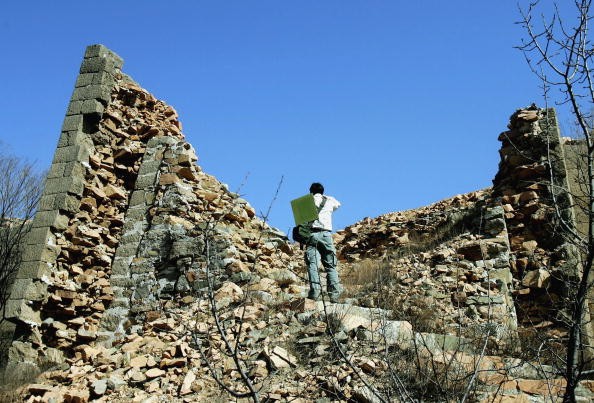Illegal mapping has become a “serious” problem in remote areas of western China, the National Administration of Surveying, Mapping and Geoinformation (NASG) announced in its annual report.
Most of those areas in the region are underprivileged and lack sufficient information, leading to many being targets of espionage because of the presence of many national defense and military facilities stationed there, Zhao Kangning, former deputy director of China's National Administration of Global Navigation Satellite Systems and Applications, told the state-owned Global Times in a report posted on Friday.
The disclosure of detailed geographic information linked to defense or military facilities leaves them vulnerable to attack, as modern military technology has now made long-range precise attacks a reality, the report said.
According to NASG, the most frequent violations include unauthorized mapping and the processing or printing of "problematic maps" that contain information that is erroneous or classified to protect national security.
Of the seven cases of illegal mapping revealed by the agency in April, three involved unauthorized mapping, including a case in which six Taiwanese nationals illegally entered a closed military area in northwest China's Xinjiang Uyghur Autonomous Region to collect geographic information.
One of the Taiwanese was fined 30,000 yuan ($4,560) after he was discovered to have used GPS receivers in the mainland to collect 35,207 sets of geographic coordinates from seven provinces and cities in the mainland since 2009, the NASG said in its announcement.
China's National Defense News reported that the illegal procurement of geographic information by foreign organizations and individuals is a common occurrence, particularly in Xinjiang, and the northern provinces of Shaanxi, Liaoning and Jilin.
"Shaanxi has captured many overseas individuals that conducted illegal mapping in recent years, and illegal mapping is on the rise," the report said, quoting an official from the Shaanxi Administration of Surveying, Mapping and Geoinformation.
The official claimed that many foreigners and associates of overseas organizations have targeted national defense projects and military facilities in the guise of traveling, investigating water resources, hiking, or conducting archeological studies in the region.
In 2011, a Japanese national was deported after being caught illegally surveying and mapping in Shaanxi. Authorities from Yunnan Province have also investigated Coca-Cola for allegedly mapping part of the province using electronic devices without authorization in 2013, according to local media reports.
Xu Yitian, an expert at the National University of Defense Technology, said that the leaks of geographic information and cases of illegal mapping that have occurred in recent years were due mainly to the lack of national autonomy in collecting, supervising, and applying data needed for mapping.
According to the NASG report, domestically produced geographic technologies and equipment make up more than 50 percent of those available, although the long way to go realize autonomous control presents a potential danger that cannot be ignored.



























